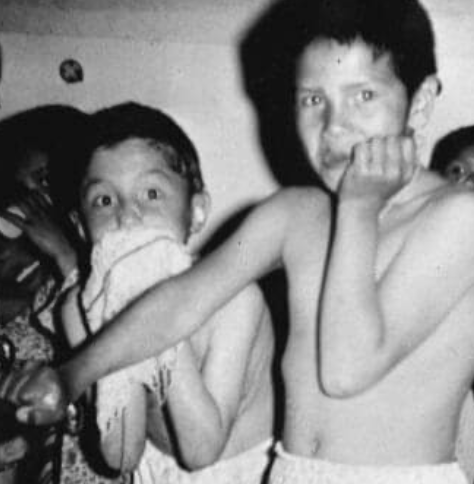Dear the *our government* would never do that crowd, please read.
— Jessica Rojas 🇺🇸💪 (@catsscareme2021) May 27, 2023
The extremely shocking Willowbrook experiments were aimed at discovering a cure for hepatitis. The continuous study lasted from 1956 to 1970. The subjects were taken from Willowbrook State School, which is… pic.twitter.com/iopVNUeFuV
The Willowbrook experiments were a controversial series of studies conducted at the Willowbrook State School, a state-supported institution for children with intellectual disabilities located in Staten Island, New York, in the 1950s and 1960s.
Dr. Saul Krugman, a pediatrician and researcher, conducted these experiments with the aim of finding a vaccine or cure for hepatitis, a highly contagious liver disease. At the time, the Willowbrook State School had a high prevalence of hepatitis, and outbreaks were common due to unsanitary conditions and overcrowding.
Dr. Krugman and his team deliberately exposed healthy children to the hepatitis virus in order to study the progression of the disease and test potential treatments. Some of the children were given gamma globulin, an antibody preparation, as a preventive measure, while others were left untreated to observe the natural course of the illness. The researchers collected blood samples and closely monitored the children to study the development of antibodies and the effects of the virus.
The experiments at Willowbrook came under intense scrutiny and were widely criticized for their ethical shortcomings. The studies were eventually halted in the 1970s after public outcry and legal action. The revelations from the Willowbrook experiments played a significant role in bringing about changes in research ethics regulations, leading to the establishment of more stringent guidelines to protect human subjects in medical research.
The fact that vulnerable children with intellectual disabilities were deliberately infected with a highly contagious and potentially life-threatening disease is a shocking display of disregard for their well-being and fundamental human rights. These innocent children were subjected to unnecessary harm and suffering for the sake of scientific inquiry, without their informed consent or the consent of their parents, who may not have fully understood the implications of the study.
Furthermore, the conditions at the Willowbrook State School were deplorable, characterized by overcrowding, unsanitary conditions, and neglect. Instead of addressing these inhumane conditions, the researchers took advantage of the situation to conduct their unethical experiments. This exploitation of a marginalized and voiceless population is deeply distressing and highlights a disturbing abuse of power and a lack of empathy on the part of the researchers involved.
The Willowbrook experiments serve as a stark reminder of the dark side of medical research and the compliance of the state when confronted with men in white coats promising miracles.
Tuskegee
The Tuskegee syphilis study, conducted between 1932 and 1972, was a highly unethical and racially biased medical research study in the United States. It was conducted by the U.S. Public Health Service (PHS) to observe the progression of untreated syphilis in African American men.
Approximately 600 African American men from rural Alabama, most of whom were poor and uneducated, were recruited for the study. However, they were not informed that they had syphilis; instead, they were told they were receiving free healthcare for “bad blood.” Even when effective treatments for syphilis became available, the participants were intentionally denied treatment, allowing the disease to progress and cause severe health complications.
The study violated basic ethical principles by depriving participants of their right to informed consent, withholding necessary treatment, and exploiting a vulnerable population. The researchers failed to provide the participants with accurate information about their condition and denied them access to the appropriate medical care that could have saved their lives.
The Tuskegee study came to light in 1972 after a whistleblower revealed its unethical nature to the public. The subsequent public outrage led to significant changes in research ethics guidelines, including the establishment of stricter regulations for informed consent and protection of human subjects in medical research.
Holmesburg Prison
Holmesburg Prison, located in Philadelphia, was a correctional facility where medical experiments were conducted on inmates during the mid-20th century. Dermatologist Dr. Albert M. Kligman and his team conducted a variety of experiments from the 1950s to the 1970s, primarily focusing on dermatology and pharmaceutical testing.
These experiments involved substances such as pharmaceutical drugs, skin creams, and chemical agents. The prisoners, who were often compensated for their participation, were subjected to these experiments, with the purpose of testing the effectiveness of new medications or studying the effects of various substances on the skin. The ethical concerns regarding the informed consent and potential risks to the prisoners were often raised.
The prison and its experiments have drawn significant attention and criticism, highlighting the ethical implications of conducting medical experiments within a prison setting. The extent of exploitation and the adequacy of informed consent given to the prisoners have been subjects of debate and scrutiny.
Acres of Skin by Allen M. Hornblum.

